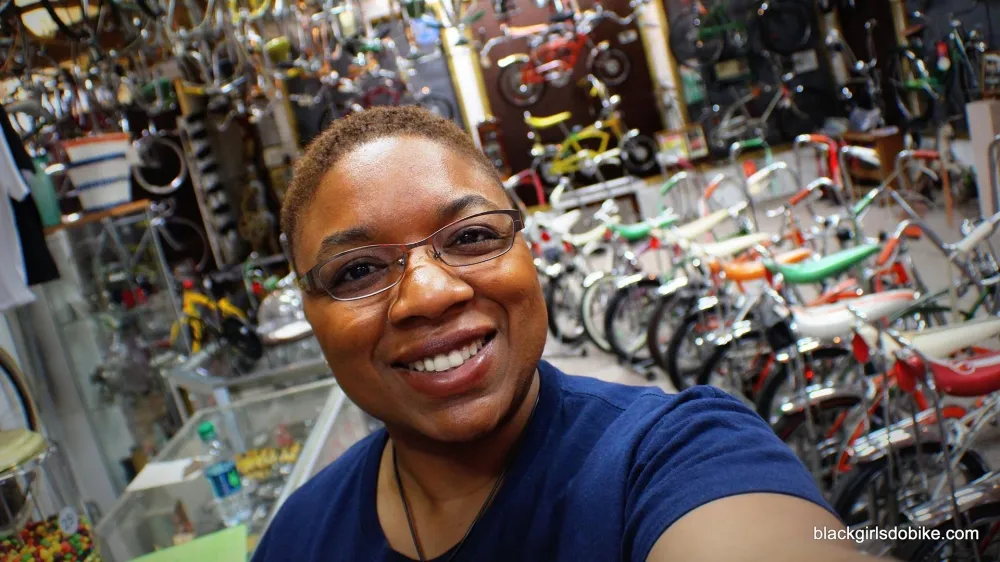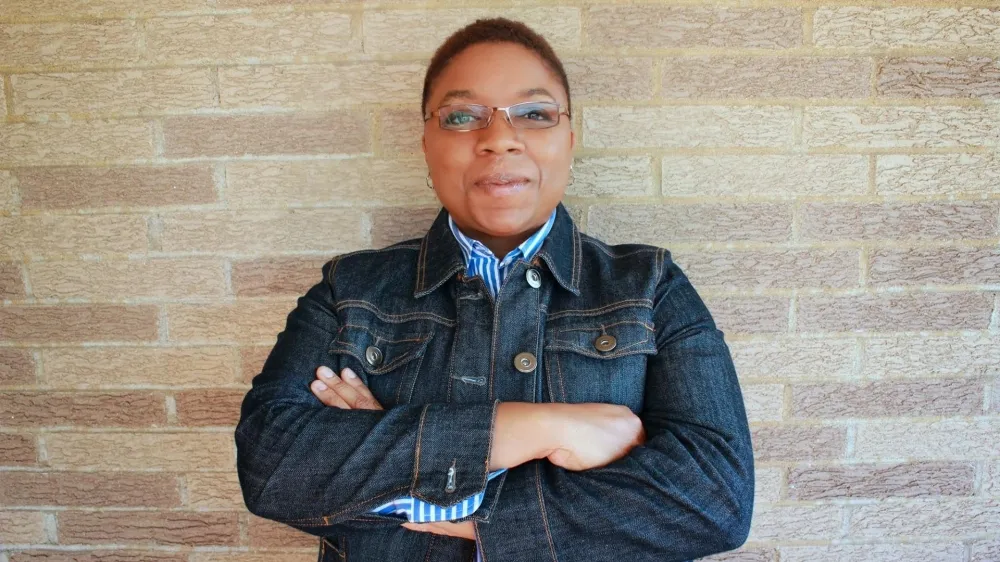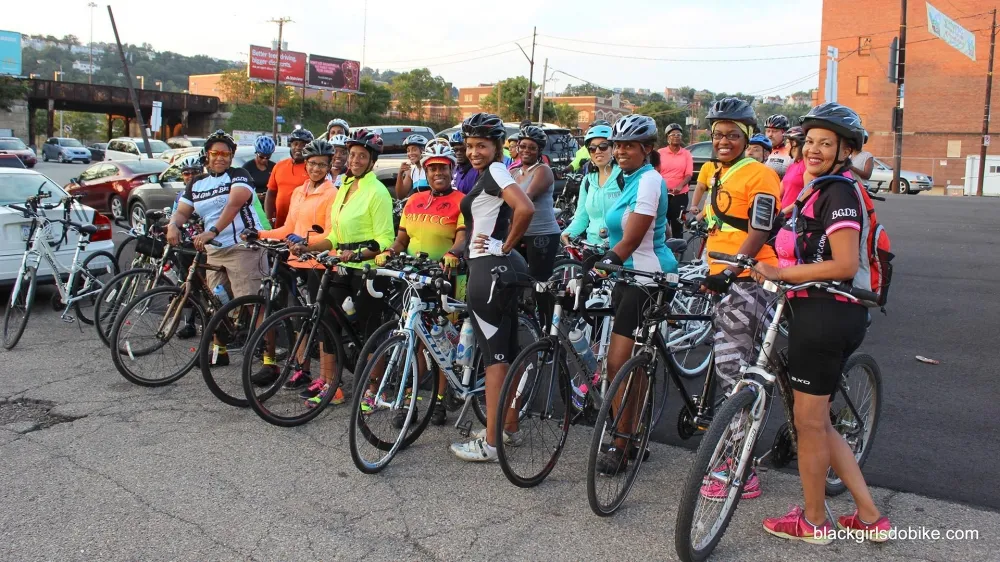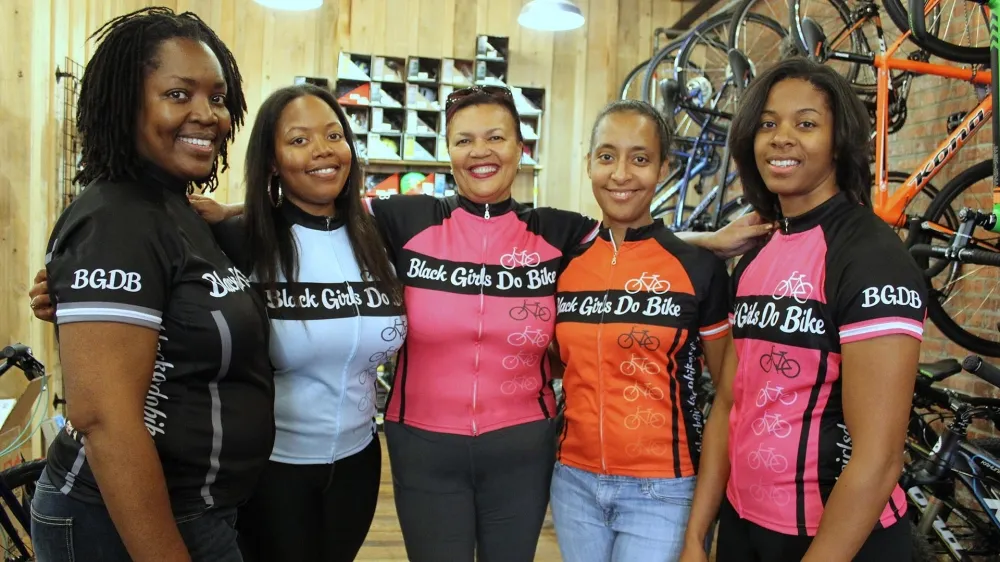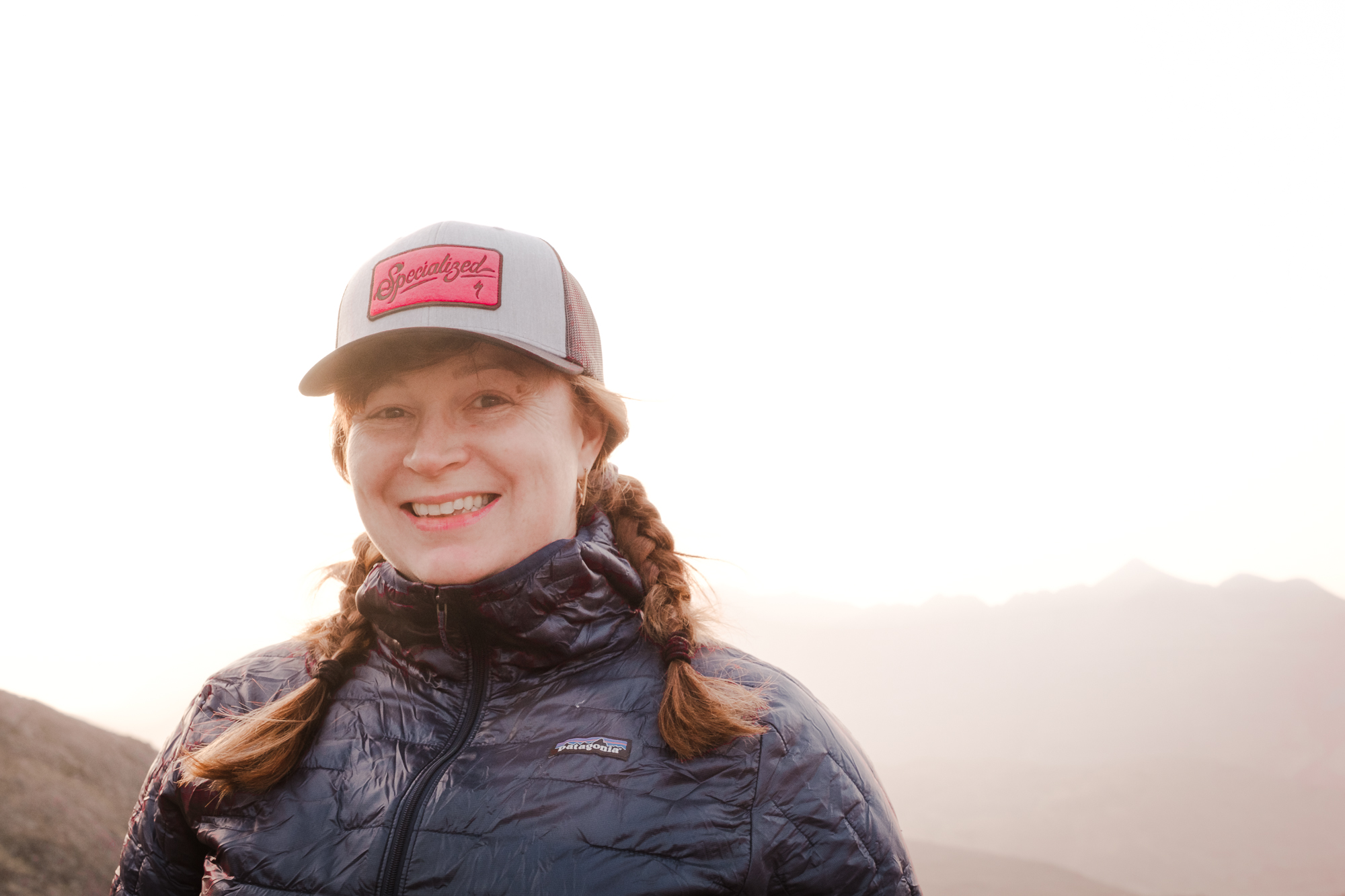Monica Garrison got back into cycling as an adult and, noticing the low numbers of other African Americans cycling around her, decided to take matters into her own hands. She founded Black Girls Do Bike, and the organisation now has over 9,000 group members.
What started as a Facebook page in 2013 has now grown into a movement, with over 55 chapters across the US and Antigua, each led by a 'Shero' who organises group rides and events.
The Black Girls Do Bike (BGDB) website hosts inspirational stories from members, how-to videos and information on how to become a Shero. BikeRadar spoke to Monica Garrison about why she founded Black Girls Do Bike, and what she feels needs to happen to address the lack of diversity in cycling.
We spoke to Black Girls Do Bike founder Monica Garrison to learn more…
Related: We celebrate all things women's cycling for International Women's Day on BikeRadar
What is Black Girls Do Bike?
"Black Girls Do Bike is an organisation created with the mission of growing and supporting a community of African American women who share a passion for cycling. We want to encourage ladies to cycle for 'function, fitness freedom and fun'. We hope to be a resource for female cyclists around the world and a comfortable place to find support no matter where you are in your bike journey.
"There is something so very powerful that happens when a group of women ride together. The synergy is real. We encourage women of all shades to joins us and pay it forward by inviting other women in their lives along for a ride. Our hope is that these women find that cycling is a wonderful way to manage their mental and physical health."
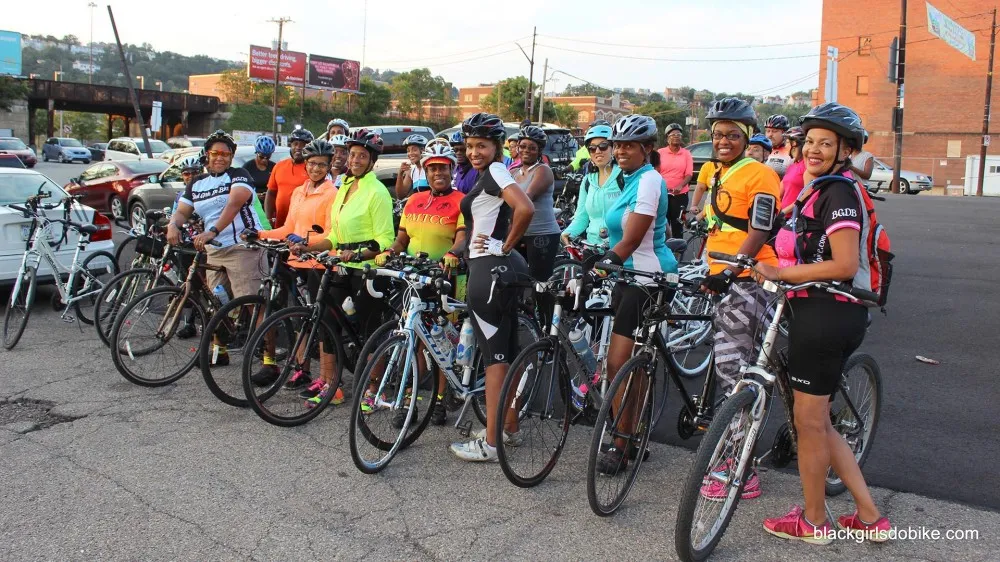
Members of the Pittsburgh Chapter of Black Girls Do Bike
"Singularly a girl on a bike is an impressive force but collectively we are unstoppable! Not to sound cliched, but it’s the power of sisterhood. You get this sense of 'We are all in this together.' This sense of 'We've got our bikes, we are doing something amazing just by being here and we are going to see this thing to the finish.' Our mere presence empowers those around us. Competition falls by the side and is replaced with a unity that is palpable.
"I love to hear a group of seasoned and new riders together. The new riders have lots of questions and the experienced riders spontaneously offer helpful suggestions that can immediately make the newcomers ride safer and more comfortable. They are better for having taken the ride together."
When did you get into cycling?
"I was the kid that spent the entire summer riding my bike from sun up to sun down, but then I put the bike away for several years. I picked it up again in my late twenties when I decided to try my hand at commuting to work, but then I changed jobs and commuting was no longer an option.
"The spring of 2013 was the next time I considered cycling seriously, after deciding I needed to get outdoors and exercise more. I first tried my hand at jogging but each time I ran the result was several days of unbearable joint pain. I knew that I needed a low impact alternative, so I bought an elliptical machine but it didn’t take long for me to grow bored with exercising indoors.
"I remembered how much I loved cycling as a child and it all came full circle. I thought that if I could recapture that feeling, exercise could be fun and not a chore or painful and I would stick to it. I also hoped to use cycling to get my kids outdoors and away from their favourite electronic devices. So riding with them was more important than riding with others. I did inquire about cycling groups in my town but they all seemed to advanced for me. I was essentially starting all over again as an adult and was looking for baby steps not 15-20 mile rides."
Why did you set up Black Girls Do Bike?
"Black Girls Do Bike came about out of a desire to connect with other women like me who had a love of cycling. Ultimately it was disappointing to realise that I rarely encountered other African American women riding in my city. So I took my search online, and created a Facebook page positively called 'Black Girls Do Bike. The number of followers swelled and we quickly established a website that aimed to be part information and part inspiration. We found ladies began to inquire about how they could connect with us in their cities and towns.
"I always say that BGDB runs on inspiration. We keep fresh content on our social networks to highlight our members' accomplishments. Each chapter is led by a 'Shero': volunteers who are passionate about cycling and about encouraging other women to try it. They moderate their city’s Facebook group pages, and they seek to positively impact their communities. They lead rides and build partnerships with local bike shops and bike and pedestrian organisations. Our rides are 'No woman left behind', so all levels are welcome.
"We think of BGDB as a cause. If you think the sport of cycling could benefit from more diversity and if you agree that more African American women could benefit from cycling regularly then we would love your support. Anyone can get involved by spreading the word about what we are doing. Tell the women in your life that we are here and invite them to join us. Share our website and engage with us online via Facebook, Instagram or Twitter.
You can also support us by purchasing gear from our shop or simply donating to help further the cause. We do several giveaways throughout the year so we are always looking for bike-related items to introduce to our members. We are also a totally volunteer run organisation so feel free to reach out to offer support, expertise or resources."
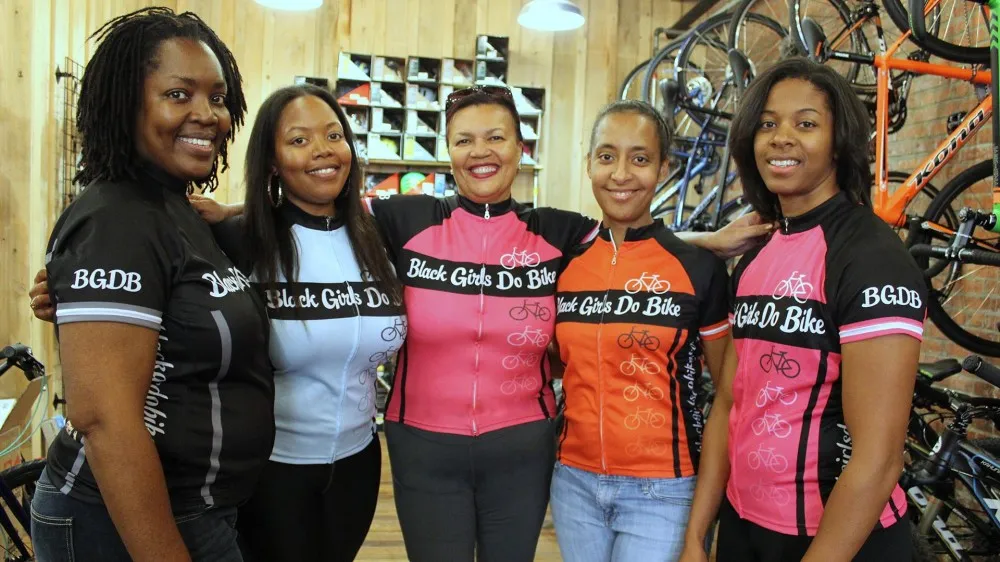
Encouraging more women into cycling, and in particular black women, is the key aim of Black Girls Do Bike
You've mentioned that one of the reasons you set up BGDB was to answer the question, 'Why aren't more African American women cycling?'. Have you found answers to that question?
"The truth is a lot of women of color are riding bikes, but the large majority are not. There are most certainly socio-economic factors. I think perception plays a large role in the limits we set on ourselves. If the women who influenced your life didn’t ride then you may not have even considered it. If you don’t see women who look like you using bikes for recreation, as alternative transportation or racing professionally you also might not consider it.
"You may have never learned to ride and fear beginning this process as as adult. Maybe your neighborhood lacks proper infrastructure to make riding from your front door to work an option. Street riding can already be intimidating and even more so for a minority female cyclist whose presence might be perceived negatively by drivers. You may be overweight and are letting a negative body image stand in the way of trying something new with people you do not know. These are all very real concerns that our members have expressed.
"I am always struck by the lack of female representation when I open a cycling magazine or website. Imagine how less often I see articles and images of women of colour related to cycling. I do believe that things are slowly changing, and I hope that Black Girls Do Bike is helping to change the landscape so that others might take notice.
"I think the most important goal for organisations seeking to encourage equity is to make sure that women and other minorities have a seat at the table where decisions are made about what images to use, what programs to create and what funds to allocate. Also, learning what the obstacles are for black women in making cycling a part of their lives, and tackling those issues, is paramount."
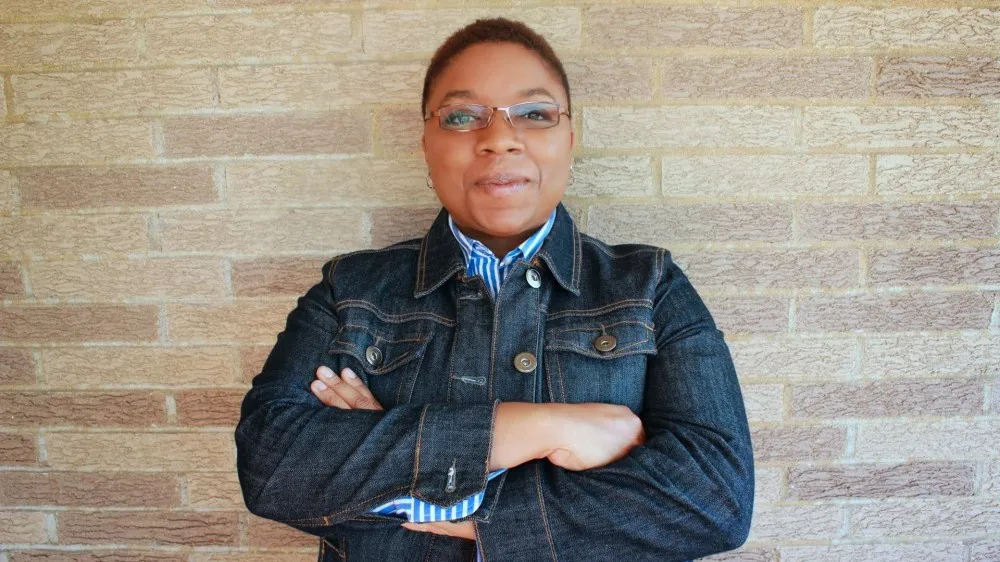
Garrison has big plans for the future of Black Girls Do Bike
What are your plans for the future of Black Girls Do Bike?
"I tend to let Black Girls Do Bike tell me where it wants to go. We have adapted so far by finding the needs of our community and finding creative ways to fulfill them.
"Right now our focus is hosting our first national event. We are converging on the city of Atlanta, Georgia in June of 2016 to engage in three days of bike-related activities. The highlight will be a takeover of the Atlanta Tour De Cure for Diabetes on June 11th, where there will be giveaways galore and lots of opportunities to engage with like-minded women. Our Sheroes and our members who have been supporting one another online will get to meet and engage in person.
"We also have a desire to establish Black Girls Do Bike groups in other parts of the world, so we will follow up on interest from Germany, London and parts of Africa. We just want to continue to grow, partner with other women centric bike organisations and spread the bike love everywhere we go."
Related: Women in the bike industry: leading the way at Trek
